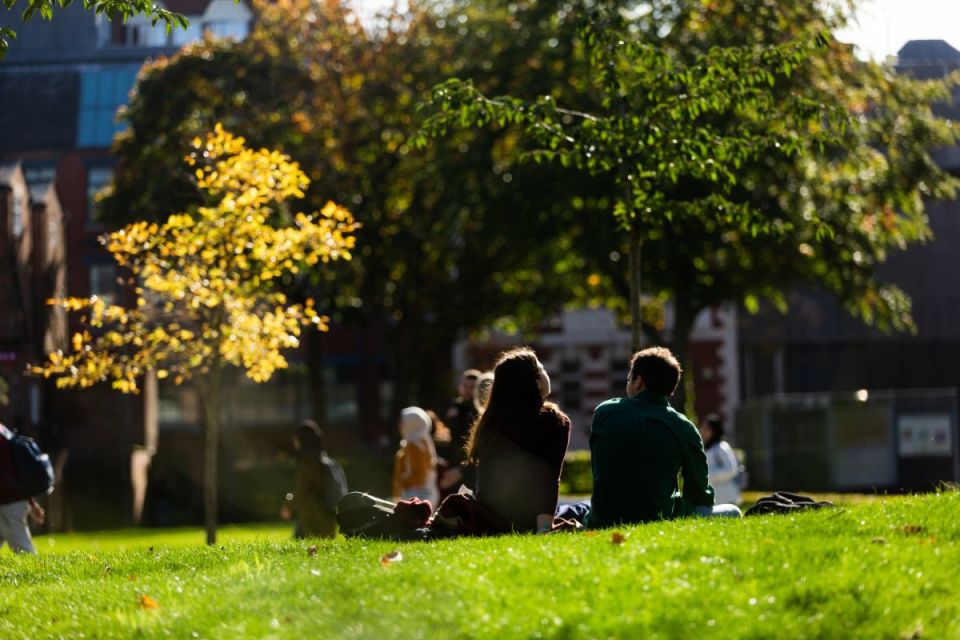Why are green spaces important?
By Bruntwood

The concrete jungle of many cities can sometimes feel overwhelming, but green spaces aren’t just about creating more attractive environments. As humans, we have an innate connection with nature, so it is perfectly logical that green space is seen as a necessity for any thriving city. “The city would also be a better place if we had more green space for children to play and for adults to relax and for wildlife to live. Allowing people who live a busy life in the city to relax and breathe fresh air would improve people's mental health and create an overall happier atmosphere to live in,” said one respondent to our What Makes a Thriving City? survey. We initially began our What Makes a Thriving City research back in 2019 - when the world was a very different place. While the findings of our original research are still valid, we believed that the pandemic may have changed the way people view cities and their surrounding areas. And so, in the summer of 2021, we set out to repeat the survey again to give us a comparative view. One thing was clear: the idea that people make a city certainly hasn’t changed, with the same themes being cited in 2021 as in 2019. What we did see, however, was ‘green spaces’ mentioned more frequently. As we all had to come together more outdoors due to restrictions, we’ve really seen the value of spaces like these in our cities.
The majority of our evolution as humans has been spent in nature, but it’s only since the industrial revolution that we’ve had to adapt to reduced levels of natural connection. And this is where urban green spaces come in, adding a sense of nature into our lives and bringing an array of benefits along with it. Spending time in nature and green spaces has been proven to have a positive impact on our mental and physical health. For people living in cities, urban green spaces are an ideal place for taking part in physical activity from a simple stroll to using the space for more vigorous workouts. Not only does the presence of such spaces in cities motivate people to lead more active lifestyles, some analysis suggests that exercising in a natural environment can help to treat mild depression. With all of the hustle and bustle that happens within any city, green space is sought after as a tranquil getaway for when you need that downtime. Connecting with nature, even in a city setting, can do wonders for health and wellbeing. It disconnects us from the busy noises and sights of a space, helping us to reflect, relax and, most importantly, reduces our levels of stress. “A thriving city should have as many parks and natural spots in it as possible to keep people close to nature for both mental and physical health.” But it’s not just people that green space has a positive impact on. As cities react to the climate crisis, green spaces can play an important part in creating an environmentally sustainable planet. Green spaces within cities, such as parks and gardens, play a vital role in cooling our cities by mitigating what is known as the ‘heat island effect’, improving air quality, absorbing carbon and reducing water flows which helps to lower the risk of flooding. Ultimately, all of these long-lasting benefits of green space improve quality of life for us all. It makes us happy, healthier and connects us to others. There’s no denying that spending time in nature is good for the soul. Whether it’s getting into the great outdoors to clear your mind, or using the natural world around us as inspiration to feed our creativity, spending time in green spaces can offer an abundance of positive benefits for all of us. If you live or work in Greater Manchester and want to get involved with green spaces in your area, why not get in touch with City of Trees, an organisation supported by our friends at The Oglesby Charitable Trust which is working to connect more people to nature by committing to planting three million trees, one for every person in Greater Manchester region. This ambitious movement is creating greener environments for everyone to enjoy. You can volunteer your time helping to not only plant trees, but managing woodlands, orchard recreation and greening streets. If you’re not based in Greater Manchester, find out what tree planting initiatives are in operation in your area and help make your region greener. What do you love about green spaces? Let us know on Twitter @bruntwood_UK.
Stay Connected!
Sign up to our newsletter for the latest news, updates and offers.